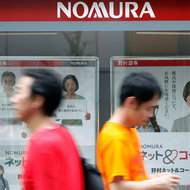NBCUniversal said that the executive, Jeff Shell, a Comcast insider who has recently been focused on the media conglomerate’s international businesses, will take over day-to-day operations at Universal Studios, which includes the Universal and Focus Features labels. For the last 18 years, those duties have fallen to Ron Meyer, who will step into a kind of senior statesman role across the company.
By naming one of its own to succeed Mr. Meyer — rather than promoting a Universal executive — Comcast signaled that the movie studio is now firmly nested inside a corporate structure that cares as much about funneling content to cable video-on-demand services as it does about theatrical hits. Comcast has made multiple changes on the television side of NBCUniversal, but it has largely left the film and theme park unit alone, leading to speculation about its future.
“I have worked with him for over a decade and have been consistently impressed by his strategic vision, operational focus and energy,” Steve Burke, NBCUniversal’s chief executive, said of Mr. Shell in a statement.
Adam Fogelson, the chairman of Universal Pictures, will leave the company after 15 years. A former movie marketer, Mr. Fogelson found hits in films like “Fast Furious 6,” “Despicable Me 2” and “Ted” — notably leaving behind a long fallow period for the studio. But Mr. Fogelson was also behind flops like “R.I.P.D.” and “Battleship.” Coming up is “47 Ronin,” a samurai film that has suffered cost overruns.
Mr. Fogelson’s deputy, Donna Langley, will take over his job. “She has been a driving force behind Universal’s current successes,” Mr. Burke said.
Mr. Meyer, 68, the longest-serving chief of a major studio, will become the vice chairman of NBCUniversal, which Comcast bought in 2011. A consummate Hollywood player — he co-founded Creative Artists Agency — Mr. Meyer is known for leading Universal through disruptive ownership changes; the studio has been bought and sold at least four times in recent decades.
Regime change has recently been sweeping Hollywood. Universal joins 20th Century Fox, Walt Disney Studios and Warner Brothers, all of which have undergone executive shuffling over the last year and a half, for various reasons.
The continued presence of Mr. Meyer, who was signed to a contract that extends into 2017, is intended in part to ensure stability while Mr. Shell, 48, who is not known in film circles, gets up to speed. Mr. Shell helped manage overseas film distribution and marketing as chairman of NBCUniversal International, but he has largely spent his career in television. He previously ran Comcast’s cable networks, which include E! and Style.
Before joining Comcast, Mr. Shell was chief executive of TV Guide International. Earlier in his career, he logged time at News Corporation, where he helped oversee Fox Sports, FX and the National Geographic Channel.

Article source: http://www.nytimes.com/2013/09/10/business/media/jeff-shell-television-executive-to-take-over-at-universal-studios.html?partner=rss&emc=rss
